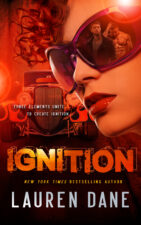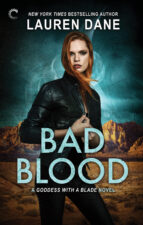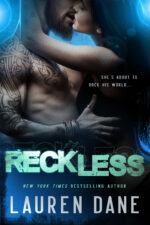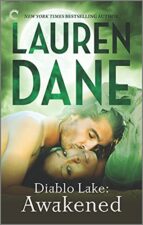|
Sep
30 2007 | ||
The other day, my husband called to tell me Judy Blume was being interviewed on NPR (Yes, the same local channel who censored my website, but whatever). Anyway, I’m a HUGE fan of Blume’s books and she’s the number two most challenged author since 1990 – for a writer of some truly amazing and memorable children’s books, I find the idea ridiculous but there you have it.
As it happens, Blume has written some really wonderful thought pieces about censorship (and speaks of it eloquently as I’ve come to hear each time she’s interviewed) but one of my favorite essays of hers is actually the introduction to a book called “Places I Never Meant To Be”
When Margaret was published in 1970 I gave three copies to my children’s elementary school but the books never reached the shelves. The male principal decided on his own that they were inappropriate for elementary school readers because of the discussion of menstruation (never mind how many fifth- and sixth-grade girls already had their periods). Then one night the phone rang and a woman asked if I was the one who had written that book. When I replied that I was, she called me a communist and hung up. I never did figure out if she equated communism with menstruation or religion.
It gets far worse for her after 1980 when her books are challenged every day and groups begin to picket and organize against her writing and her books.
I found myself at the center of the storm. My books were being challenged daily, often placed on restricted shelves (shades of Elizabeth, New Jersey, in 1955) and sometimes removed. A friend was handed a pamphlet outside a supermarket urging parents to rid their schools and libraries of Judy Blume books. Never once did the pamphlet suggest the books actually be read. Of course I wasn’t the only target. Across the country, the Sex Police and the Language Police were thumbing through books at record speed, looking for illustrations, words or phrases that, taken out of context, could be used as evidence against them.
I think there are a few reasons what she has to say resonates with me so strongly – first, her books were a hugely formative part of my youth and puberty. I can remember reading Are You There God, It’s Me, Margaret, I can remember crying as I read Blubber. When I read her books I didn’t feel alone. At the time, it just made me feel better. But now I understand how much of a gift it takes to write like that. And that leads me to the second reason, I write too. No, I’m no Judy Blume. I’d never presume to make the comparison, but I do understand how the world can feel scary when you take risks with your writing and say things people are afraid to hear.
She talks about how her editor read a passage in Tiger Eyes and brought up how it would attract trouble over content. She describes standing there, with this person who’d been with her through her other books and feeling so alone. And in the end, she took out the lines.
What effect does this climate have on a writer? Chilling. It’s easy to become discouraged, to second-guess everything you write. There seemed to be no one to stand up to the censors. No group as organized as they were; none I knew of, anyway. I’ve never forgiven myself for caving in to editorial pressure based on fear, for playing into the hands of the censors. I knew then it was all over for me unless I took a stand. So I began to speak out about my experiences. And once I did, I found that I wasn’t as alone as I’d thought.
She found a group, the National Coalition Against Censorship (NCAC) and began to speak out against censorship. The essay, which I’ve linked above, gives countless examples of teachers who either censored books or were punished for not censoring their students. Of school adminstrators removing important classics like “To Kill A Mockingbird” and “The Red Badge of Courage.”
What I worry about most is the loss to young people. If no one speaks out for them, if they don’t speak out for themselves, all they’ll get for required reading will be the most bland books available. And instead of finding the information they need at the library, instead of finding the novels that illuminate life, they win find only those materials to which nobody could possibly object.
Some people would like to rate books in schools and libraries the way they rate movies: G, PG, R, X, or even more explicitly. But according to whose standards would the books be rated? I don’t know about you but I don’t want anyone rating my books or the books my children or grandchildren choose to read. We can make our own decisions, thank you. Be wary of the censors’ code words — family friendly; family values; excellence in education. As if the rest of us don’t want excellence in education, as if we don’t have our own family values, as if libraries haven’t always been family-friendly places!
This is why I speak out. This is why I speak up. Books have always been important in my life. They’ve transported me to other times, other places, they’ve helped me understand myself, my place in the world, they’ve amused me, made me mad, challenged me, taught me, infuriated me and have been a constant companion.
I can still remember the first time I read certain books – Toni Morrison’s Beloved for instance (and one that shows upon the challenge list every year). Harper Lee’s To Kill A Mockingbird – oh the anger at injustice I felt! Vaclav Havel’s Living in Truth – the one book I think has formed my adulthood the most and interestingly enough, a book with several essays about censorship, LOL.
I don’t think everyone has to agree with me or my ideas. I don’t think everyone has to agree with the ideas in the books I write or read or love. But the idea that anyone out there believes a book like Beloved shouldn’t be available breaks my heart and makes me mad.
The bottom line is, censorship happens, often when you least expect it. It’s not just about the book you may want to read but about the book your classmate might want to read. It’s not just about teachers and librarians at other schools who might find themselves in job-threatening situations — it could happen at your school. Your favorite teacher, the one who made literature come alive for you, the one who helped you find exactly the book you needed when you were curious, or hurting, the one who was there to listen to you when you felt alone, could become the next target.





October 1st, 2007 at 8:46 am · Link
Thank you for your articulate take. Banned Books week always makes me sad. but I like to look through the list and see how many of the listings I have read, and think about why I haven’t read others. We don’t live in a vanilla world…